Which of the following reactions will not give Hofmann alkene ?




The correct Answer is:C
To determine which of the following reactions will not give Hofmann alkene, we need to analyze the conditions that favor the formation of Hofmann alkenes. Hofmann alkenes are typically formed under specific conditions, which include:
1. Use of a bulky base: Bulky bases, such as tert-butoxide, favor the formation of less substituted alkenes (Hofmann alkenes) due to steric hindrance.
2. Poor leaving groups: Reactions involving poor leaving groups (e.g., NR3+, SR2+, F-) also lead to the formation of Hofmann alkenes.
3. Steric hindrance at the gamma carbon: If there is steric hindrance at the gamma carbon, this can also lead to the formation of Hofmann alkenes.
4. Presence of double bonds at the beta carbon: If the alkyl halide contains one or more double bonds at the beta carbon, it can also lead to the formation of Hofmann alkenes.
Now, let's analyze the given cases:
1. First Case: The leaving group is chlorine (Cl), which is a poor leaving group. Therefore, Hofmann alkene will form.
2. Second Case: This case involves both a poor leaving group and a bulky base. Hence, Hofmann alkene will also form.
3. Third Case: Here, we have a good leaving group (Cl) and a non-bulky base (OME). In this situation, the reaction will favor the formation of the more substituted alkene (Zaitsev product) instead of Hofmann alkene.
4. Fourth Case: This case involves alkyl halides with double bonds at the beta carbon, which will favor the formation of Hofmann alkenes.
Based on this analysis, the reaction that will not give Hofmann alkene is the third case.
Final Answer:
The correct answer is C (the third case).
The correct answer is C (the third case).
Topper's Solved these Questions
- ORGANIC REACTION MECHANISMBOOK - CENGAGE CHEMISTRY ENGLISHCHAPTER - ORGANIC REACTION MECHANISMEXERCISE - Assertion-Reasoning
12 Videos
- ORGANIC REACTION MECHANISMBOOK - CENGAGE CHEMISTRY ENGLISHCHAPTER - ORGANIC REACTION MECHANISMEXERCISE - Archives
8 Videos
- ORGANIC REACTION MECHANISMBOOK - CENGAGE CHEMISTRY ENGLISHCHAPTER - ORGANIC REACTION MECHANISMEXERCISE - Multiple Correct
30 Videos
- NCERT BASED EXERCISEBOOK - CENGAGE CHEMISTRY ENGLISHCHAPTER - NCERT BASED EXERCISEEXERCISE - Chemical Equilibrium
73 Videos
- P-BLOCK GROUP 13 - BORON FAMILYBOOK - CENGAGE CHEMISTRY ENGLISHCHAPTER - P-BLOCK GROUP 13 - BORON FAMILYEXERCISE - Exercise Archives (Subjecive)
9 Videos
Similar Questions
Knowledge Check
Which of the following reactions will give alkyne?
A B
B CH3C−Br∣C∣Br−Br∣C∣Br−CH3Zn,Δ−−−→DH3C−C≡CHHg+2,H2SO4−−−−−−−−→
CH3C−Br∣C∣Br−Br∣C∣Br−CH3Zn,Δ−−−→DH3C−C≡CHHg+2,H2SO4−−−−−−−−→Type of elimination reaction in which least substituted alkene is major product known as Hofmann's elimination. Such reaction occur in following conditions : (X) when base is bulky
(Y) when leaving group is very poor such as fluoride, ammonium group (−⊕NR3) etc.
(Z) when alkyl halide contain one or more double bonds.
Which of the following will not produce Hofmann's alkene as major product on reaction with strong base?A B
B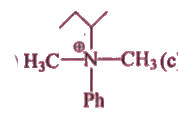 C
C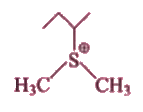 D
D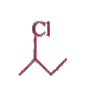
Which of the following compounds cannot give Hofmann rearrangement?
A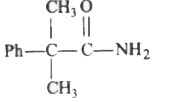 B
B C
C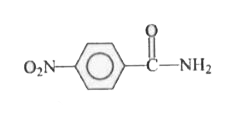 D
D
Which of the following reactions will give alkyne?
View SolutionWhich of the following reactions is Hofmann elimination ?
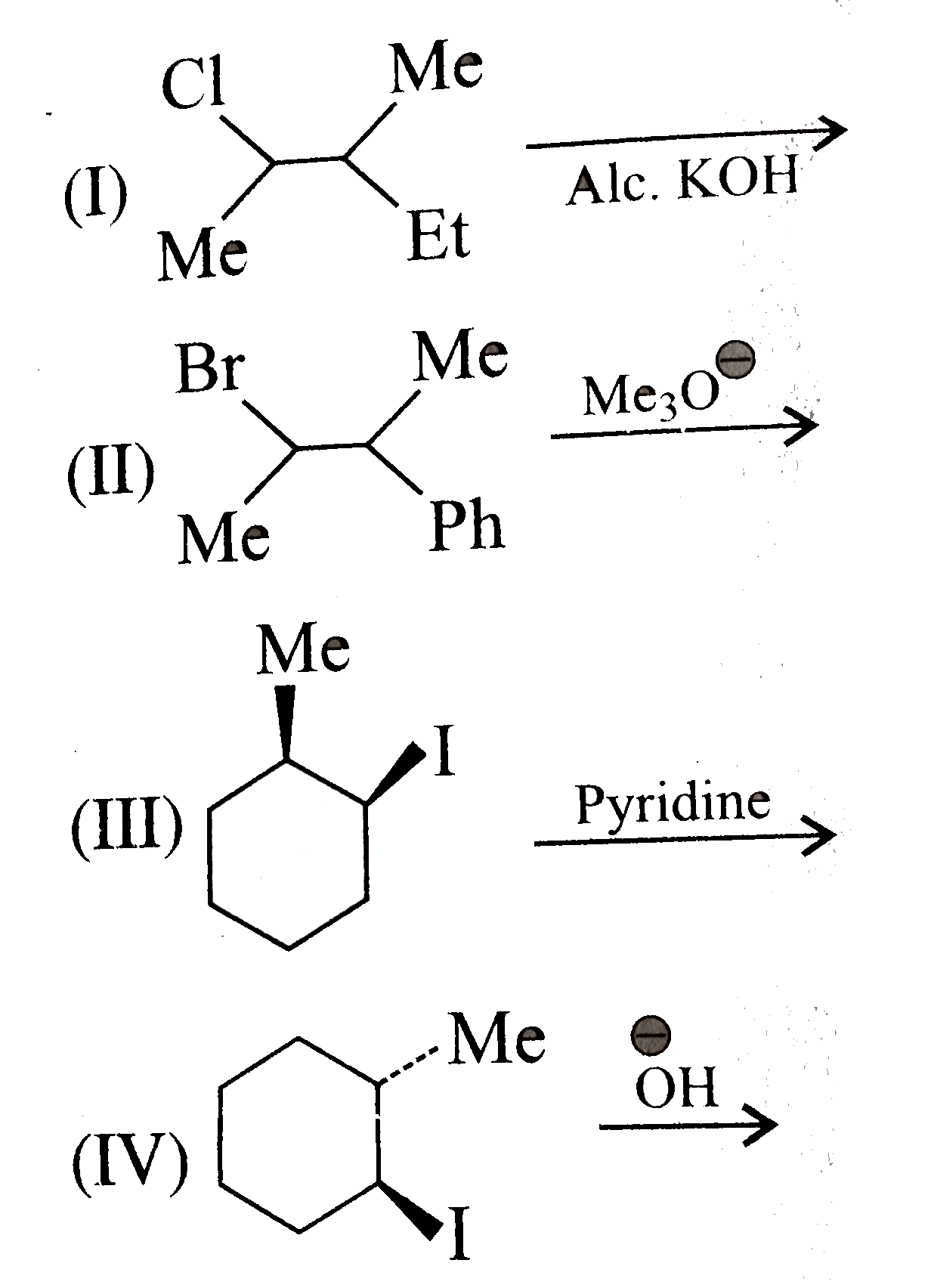 .
.
View SolutionWhich of the following reactions will give least substituted alkene?
View SolutionWhich of the following alcohols will give same alkene on reaction with conc. H2SO4 ?
View SolutionWhich of the following reactions will undergo an elimination reaction and an alkene will be formed in the product?
View Solution
